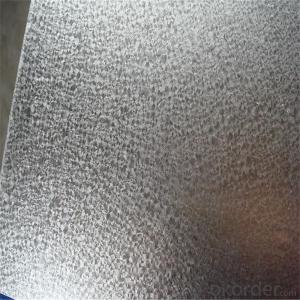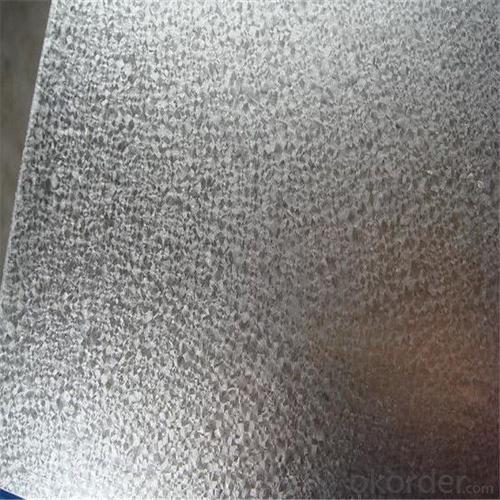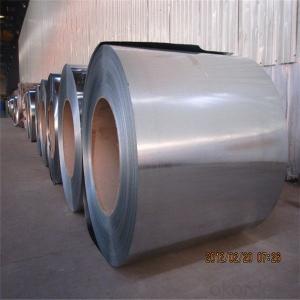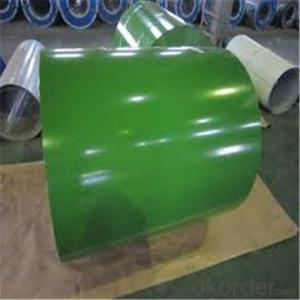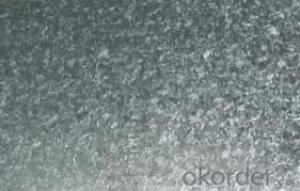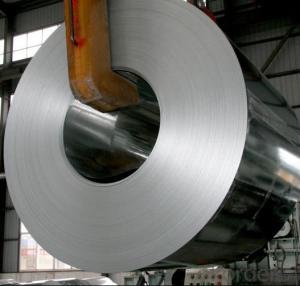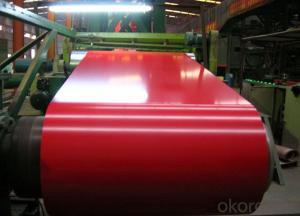Aluzinc Coated galvanized iron steel sheet in coil
- Loading Port:
- China main port
- Payment Terms:
- TT OR LC
- Min Order Qty:
- 25 m.t.
- Supply Capability:
- 17654 m.t./month
OKorder Service Pledge
OKorder Financial Service
You Might Also Like
Specification
Galvalume steel sheet is a carbon steel sheet laminated with an aluminum-zinc alloy. Also known as Zincalume, this
product is protective against corrosion in many conditions, which makes it ideal for roofing, siding, building components
and architectural panels.
Strong, yet lightweight, Galvalume wont crack or peel when subjected to weather. Galvalume consists of 55% aluminum,
43.4% zinc and 1.6% silicon over the base metal. This coating is applied during a continuous hot-dip process. AZ40,
AZ50, AZ55 and AZ60 translate to the coating thickness of .40, .50, .55 and .60 ounces per square foot, respectively.
Standard and Grade :
Hot-dip Aluzinc steel coils | ||||
ASTM A792M-06a | EN10327-2004 | JIS G 3321:2010 | AS- 1397-2001 | |
Commercial quality | CS | DX51D+AZ | SGLCC | G1+AZ |
Structure steel | SS GRADE 230 | S220GD+AZ | SGLC400 | G250+AZ |
SS GRADE 255 | S250GD+AZ | SGLC440 | G300+AZ | |
SS GRADE 275 | S280GD+AZ | SGLC490 | G450+AZ | |
SS GRADE 340 | S320GD+AZ | SGLC570 | G450+AZ | |
SS GRADE 550 | S350GD+AZ | G500+AZ | ||
S550GD+AZ | G550+AZ | |||
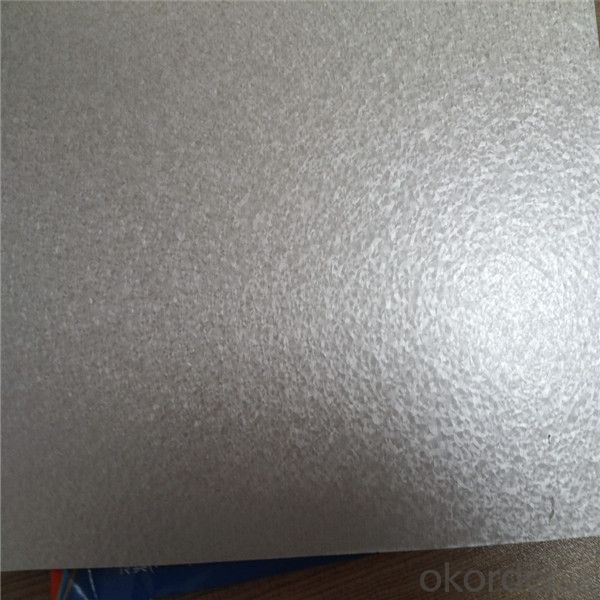
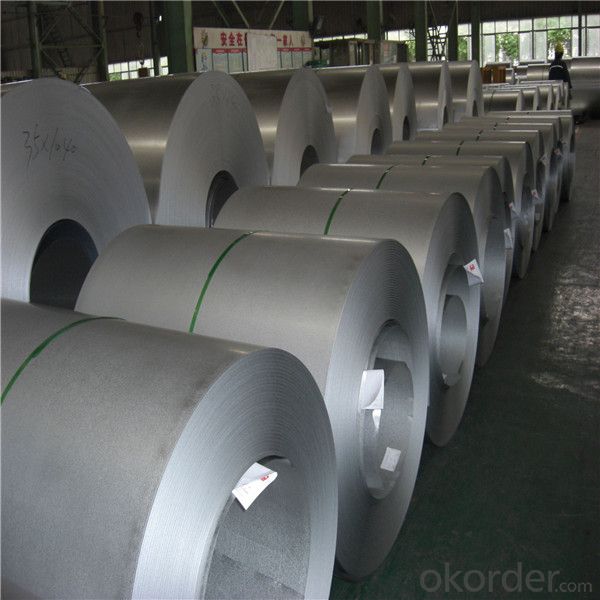
Application :
Production of cold formed corrugated sheet and profiles for roofing, cladding, decking, tiles, sandwich
walls, rainwater protective systems, air conditioning duct as well as electrical appliances and engineering.
Packaging & Shipping
Packaging Detail | The packing of coil consists of anti-damp paper ,PVC film ,hardboard paper , steel box , strapped with steel strips, fitted with locks and edge protectors and guarantees the optimal condition of the delivered goods. Each coil can be additionally fitted with wooden/steel skids(eye of the side) or wooden pallets(eye of the sky) |
Delivery Time | within 30 days of receipt of LC original or prepayment |
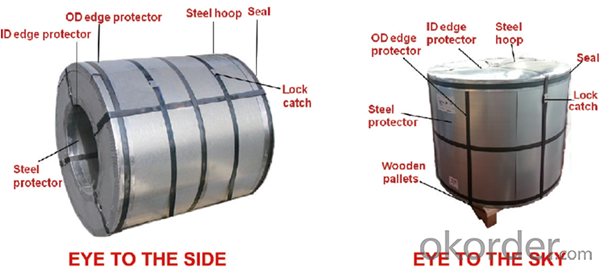
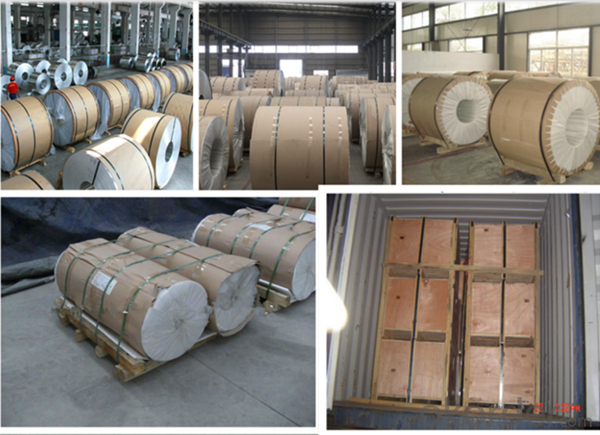
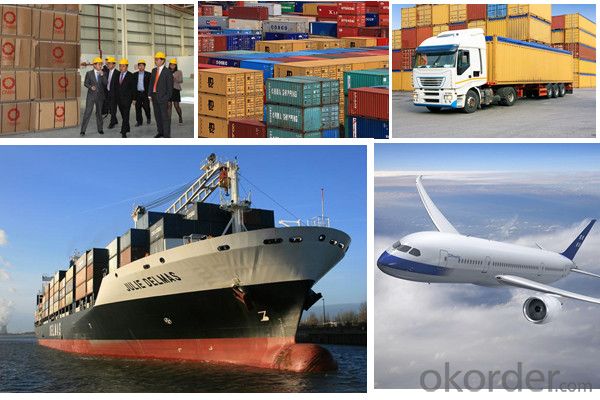
Our Services
MOQ | FCL, 25 metric tons per 20GP, can be assorted with different sizes. |
LCL for trial order is acceptable. | |
Price Term | EX-WORK, FOB China Port, CNF, CIF |
Payment | T/T, 30% advanced payment before production and balance before shipment; OR Irrevocable L/C at sight. |
Delivery Time | within 30 days of receipt of LC original or prepayment |
Our Advantage
* Professional Personnel of Steel Trading
* Strong Steel Industry Background
* Conveniently Geographic Location
FAQ
Q: How do you guarantee the quality of your product?
A: Every process will be checked by responsible QC which insures every product's quality.
Q: How much is your delivery time?
A: Normally within 30 days of receipt of LC original or prepayment, but mostly according to the
specific requirements or the quantity
Q: I need sample, could you support?
A: We can supply you with the sample for free, but the delivery charges will be covered by our customers.
For avoiding the misunderstanding, it is appreciated if you can provide the International Express Account for
Freight Collect. Also you can have a visit to us, welcome to CNBM!
- Q: I'm planning to buy a pair of Doc Marten boots but I want some steel toed ones. I don't know if all of them are steel toed, or only some of them, or what?
- Dr Martens Steel Toe Boots
- Q: My neighbor who has an older model mustang installed a steel clutch in it and has blown 4 transmissions as a result.Can any mechanic explain why a steel clutch would kill transmissions? What other modifications would the car need in order to prevent this?
- i own a repair shop,and i can tell you ,part of his problem is probably the installation part of it,and secondly what he,s using is made for racing,not street driving that's probably the second part of it,i have built a few of those transmissions,and they usually don't wipe the transmission out when they go,id say a lot of his,is in the work ,or who did it there's no way to prevent this,other than to build the transmission,and use it for what it was intended to be used for,good luck,i hope this help,s.
- Q: Im going to buy T-304 Stainless Steel exhaust tips for my truck. Is T-304 Stainless Steel good metal?
- Stainless steel is available in 2 grades - 304 and 316. The 304 has traces of ferrous to make it adaptable for the intended purpose. The 316 is non-ferrous and a bit more expensive. Whereas the 316 will not inhibit rust, the 304 will show some flecks (which can be cleaned away) over a period of time. It, however, is as good as the other.
- Q: How are steel coils used in the production of steel cables?
- Steel coils are used in the production of steel cables as they serve as the raw material for cable manufacturing. The steel coils are unwound and then processed through a series of steps, such as drawing, stranding, and coating, to transform them into steel cables of various sizes and strengths. These cables are widely used in industries like construction, transportation, and telecommunications for purposes such as supporting structures, lifting heavy objects, and transmitting electrical signals.
- Q: So I'm looking for some decently priced black motorcycle boots that have steel toes (and any additional protection) and look good in jeans. Pretty simple. Any recommendations?
- (add boots in top right search) If your looking for a dedicated motorcycle boot they have videos (top of line look for the high $) what they don't tell you is the added road feedback threw the soles and the small wear toe hard shift pad gives you feed back on the shift lever next to bare footed!
- Q: How are steel coils used in the production of roofing panels?
- Steel coils are used in the production of roofing panels by being fed through a machine that shapes and cuts the steel into the desired panel size and shape. The coils are unrolled and flattened, then passed through a series of rollers to form the corrugated or flat panel profile. This process ensures the panels have the strength and durability required for roofing applications.
- Q: What is the standard diameter of steel coils?
- The standard diameter of steel coils can vary depending on the industry and specific application, but it is typically between 24 to 72 inches.
- Q: How are steel coils cleaned before use?
- Steel coils are cleaned before use through a process known as pickling. Pickling is a chemical treatment that helps remove any impurities, scale, rust, and other contaminants from the surface of the steel coils. The initial step involves the steel coils being immersed in an acid bath, typically a mixture of hydrochloric acid and sulfuric acid. This acid solution helps dissolve any rust, scale, and other surface impurities. The duration of the immersion depends on the extent of contamination and the desired cleanliness level. After the pickling process, the coils are thoroughly rinsed with water to remove the acid solution and any remaining residue. This step is crucial to prevent further corrosion or chemical reactions. Once the rinsing is complete, the coils are often subjected to a drying process to remove any remaining moisture. This can be done through air drying, using high-pressure air blowers, or by passing the coils through heated chambers. After the cleaning process, the steel coils are now ready for use in various applications such as manufacturing, construction, or any other industry that requires high-quality steel products. The pickling process ensures that the coils have a clean, smooth, and corrosion-resistant surface, allowing them to perform effectively and meet the desired specifications.
- Q: What is the process of recycling steel coils?
- To ensure optimal utilization of material and minimize waste, several steps are undertaken in the recycling of steel coils. To begin, steel coils are gathered from a variety of sources, including industrial manufacturing facilities, construction sites, and scrap yards. These coils are then transported to a recycling facility where their quality is thoroughly assessed and the appropriate recycling method is determined. Following this, the steel coils are cleansed to eliminate any contaminants such as dirt, oil, or paint. This cleansing process may involve the use of chemical agents or mechanical procedures, depending on the extent of contamination. The cleansing of the coils is crucial in maintaining the quality of the recycled steel. After the cleansing process, the coils are either shredded or sheared into smaller pieces for easier processing. This step helps to increase the surface area, making it simpler to separate the steel from any other materials that may be present within the coils. Once the coils have been broken down into smaller pieces, they undergo magnetic separation. This entails passing the steel pieces through a magnetic separator that utilizes powerful magnets to attract and separate the ferrous steel from non-ferrous materials like aluminum or plastic. This separation is vital in ensuring the purity of the recycled steel. The separated steel pieces are then subjected to extremely high temperatures in a furnace, causing them to melt. This melting process not only eliminates any remaining impurities but also allows the steel to be shaped into various forms and molds, depending on its intended use. Following the melting process, the molten steel is poured into molds or cast into ingots to solidify. These ingots can be further processed and transformed into new steel products or used as raw material in different industries. Throughout the recycling process, the steel coils are subjected to quality control measures to guarantee that the resulting recycled steel meets the necessary specifications and standards. This includes conducting chemical analyses and mechanical tests to verify the strength, composition, and overall quality of the recycled steel. In conclusion, the recycling of steel coils involves the collection, cleansing, shredding, separation, melting, and molding of the steel to produce new products or raw material. This process not only conserves valuable resources but also reduces the environmental impact associated with traditional steel production.
- Q: How do steel coils contribute to the construction equipment industry?
- Steel coils play a crucial role in the construction equipment industry by providing the necessary raw material for manufacturing various construction machinery and equipment. These coils, made from high-quality steel, are used in the fabrication of a wide range of construction equipment, such as cranes, bulldozers, excavators, loaders, and forklifts. The primary contribution of steel coils to the construction equipment industry lies in their structural strength and durability. Steel is known for its excellent mechanical properties, including high tensile strength, toughness, and resistance to wear and corrosion. These qualities make it an ideal material for constructing heavy-duty machinery that can withstand the demanding conditions of construction sites. Steel coils are used to manufacture the structural components of construction equipment, such as chassis, frames, booms, buckets, and attachments. These components need to be robust and able to withstand heavy loads, impacts, and constant use. Steel coils provide the necessary strength and reliability to ensure the longevity and performance of construction equipment. Furthermore, steel coils are also used to fabricate specialized parts and accessories for construction machinery. These include hydraulic systems, gears, shafts, bearings, and fasteners. These components are crucial for the proper functioning and efficiency of construction equipment, and steel coils provide the high-quality material needed to manufacture them. In addition to their mechanical properties, steel coils also contribute to the construction equipment industry through their versatility and customization options. Steel can be easily shaped, cut, welded, and formed into various shapes and sizes, allowing manufacturers to create equipment with specific designs and functionalities to meet the diverse needs of construction projects. Overall, steel coils are indispensable in the construction equipment industry as they provide the foundation for robust and reliable machinery. Their strength, durability, and versatility make them an essential raw material for manufacturing construction equipment that can withstand the rigors of the construction site and ensure the safety and efficiency of construction projects.
Send your message to us
Aluzinc Coated galvanized iron steel sheet in coil
- Loading Port:
- China main port
- Payment Terms:
- TT OR LC
- Min Order Qty:
- 25 m.t.
- Supply Capability:
- 17654 m.t./month
OKorder Service Pledge
OKorder Financial Service
Similar products
Hot products
Hot Searches
Related keywords
